Phases of the RIE funding programme
Phase 1: Identification (completed)
In Phase 1, development cooperation projects were identified that were suitable for an RIE and especially for the funding programme. The following criteria had to be met:
- Partial funding of the development cooperation project by the BMZ
- Possibility of carrying out an RIE (experimental or quasi-experimental)
It is difficult to state in general terms whether and to what extent a development cooperation project is suitable for RIE. This checklist offered the possibility to assess project suitability for RIE. DEval also offered consultation sessions in this subject.
Those responsible for suitable projects submited a project description, which served as the basis for Phase 2 (conception).
Phase 2: Design (completed)
DEval conducted a matchmaking to connect development cooperation projects with scientific institutions that can rigorously evaluate those projects. Afterwards, the responsible scientists, together with the identified development cooperation projects, developed RIE research projects. As those who submitted the application, the scientists had the main role in this process. The project- and country-specific knowledge of the development cooperation projects is however essential for the successful design and implementation of the RIE research projects.
Phase 3: Application (completed)
Once the conception of the RIE research projects has been completed, the scientists submited the funding application, which required a letter of support from the development organisation implementing the project.
All the information and documents that were relevant to the application are published here: Call for Proposal.
Phase 4: Selection process (completed)
The funding applications were evaluated by a selection committee, which consisted of:
- BMZ representatives
- DEval representatives
- international RIE experts
All applications were examined regarding the research ethics, appropriateness of the requested funds and the handling of potential risks or obstacles. If there were major deficiencies, the applications could be revised or the funds could be reduced. If the requirements were not adequately met, the applications were rejected for funding.
If the requirements were met, applications were evaluated based on three criteria:
- Relevance to development policy
- Quality of the project
- Usefulness and partner orientation
Phase 5: Commitment and implementation (ongoing)
After the final selection of research projects, the implementation of the RIE research projects began. The funding period is between March 2023 and September 2025.
Phase 6: Analysis
After completion of the RIE, the success of the funding programme will be systematically analysed, including a review of learning experiences gained from implementing it (see learning experiences).
For this purpose, surveys will be conducted with the people involved in the project during the implementation phase.


